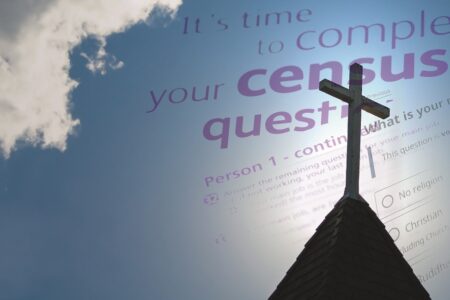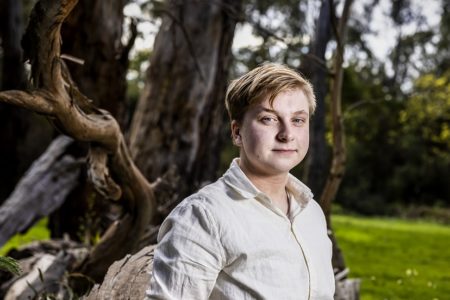Jenny Byrnes retired recently, 42 years after she was ordained in the Uniting Church. Before her retirement, Jenny sat down for a chat with Stephen Acott.
Where were you born and raised?
I was born in Queensland, in Toowoomba, but I was only there a week before my parents moved down to Melbourne. My father worked for a bank so I was raised primarily in Melbourne, with three years in England when I was a teenager.
What church did you go to when you were growing up?
St James Presbyterian Church in Wattle Park.
How did you go at school? Can you remember that far back?
(Laughs) I was an enthusiastic student, but my mother died in my last couple of years of schooling and that affected my marks, but I got through OK.
Mum had brain brain tumour and in those days they weren’t good at working out what was going on – the X-Rays didn’t pick it up – so my mother died very suddenly. In hindsight, we could see that things were not going well, probably for six years. She’d drop something or burn herself because her coordination wasn’t good and then one day she collapsed at home and they took her to hospital in an ambulance and she died 24 hours later.
Did that affect your faith?
My faith was probably reinforced after my mum died because I kept my dad company going to church. Dad was a lay preacher and it was an important time for me to try and offer support to him. My brothers – I have four – weren’t going much at that point, so I think I learned then about the importance of an habitual immersion into the faith story. Being held by a community faith, even though you one might not have the capacity to pray or know what to do, the community gathered and held us, so that reinforced my faith at that point.
A lot of teenagers witnessing their mother dying like that would possibly get angry with God and even turn away from the Church, but that wasn’t your response.
A couple of my brothers felt that way, but as I managed the emotional turmoil I realised that our life is amazing, our bodies are amazing, how we work is amazing, and it’s not surprising that things go wrong. So I didn’t feel resentful. I was sad, but such his life.
As I got into my 20s, I did have some close people in the church who ranted and raved when they had a cancer scare – “how could this happen to me” and that kind of thing. And my response was “why shouldn’t it happen to you?” (laughing) It happened to my mum, why shouldn’t it happen to you?
What did you plan to do when you finished school?
I had two thoughts. One was to be a missionary in the Amazon and the other was to be a sports teacher. I ended up going down the phys-ed path and did a little teaching. Half way through my phys-ed course I went to Queensland for 12 months to spend more time with my grandparents, particularly my maternal grandparents. Mum was their only daughter and I was their only grand-daughter out of 13 grandchildren. So while I was there I did a little bit of phys-ed teaching.
When I eventually had my teaching placements I started to get quite frustrated with how phys-ed teaching was done at that time. My interest was physical education for people with disabilities and when I tried to do more remedial physical education for students with learning difficulties, such as dyslexia and autism and stuff like that, the school wasn’t interested and just told me to teach basketball.
Around this time we began to discover that dyslexia was linked to confusion in the brain. Put simply, whether the stroke on the curve was on the left or the right made the difference between whether it was B or D and people with dyslexia struggled with that. At that time I and a few others discovered that if you did some trampolining and cross-pattern walking and crawling you could re-pattern the brain so it started to distinguish between left and right much better. We noticed that people who had learning difficulties improved in their capacity to read.
Most of us who have a strong left and right brain, if we get on a trampoline and start to overbalance we throw out the other arm or leg, but people with dyslexia or learning duties don’t often do that.
People with learning difficulties often miss the crawling stage in their development, where if you put your right hand forward, you then put your right knee forward. That’s how you crawl. So we would lay out fishing nets about a metre off the ground and ask students to crawl beneath it and play games like handball. And for those students with learning difficulties it helped re-pattern their brains.
I loved all that stuff and did physical education with people with Down Syndrome and so I started to learn a lot of stuff about how privileged I was. We’d ask people with Down Syndrome to run up on to this springboard and jump and they had no concept of jumping. So I guess that started to feed into a whole lot of stuff about learning and unlearning and living to our potential and all that kind of stuff. And when I came back from Queensland, I finished the course, but then decided at the end of it that I didn’t want to just teach basketball. I wanted to relate to the whole person and decided to go into ministry.
I was 22 at that stage and, four years later, I was ordained.
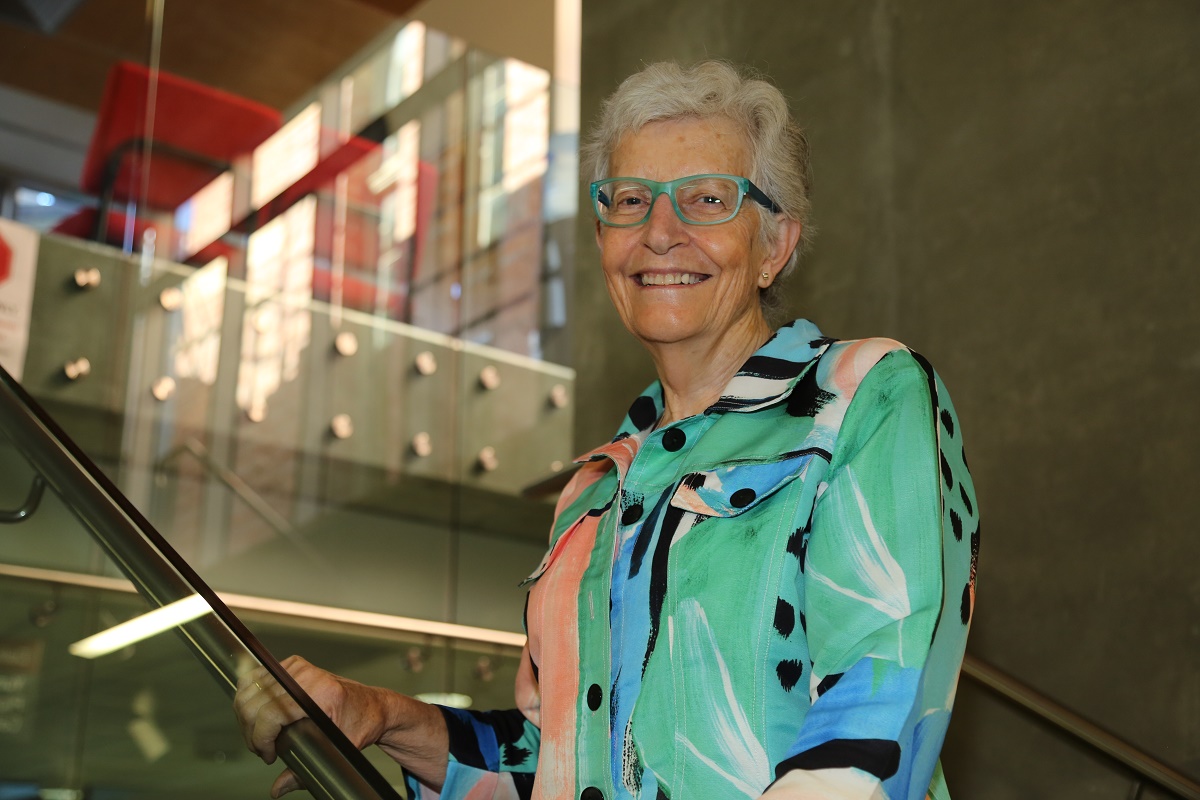
In her 20s, Jenny was encouraged to train to become a Minister of the Word.
It’s clear that, even at an early age, there was something within you that wanted to help people. Even going back to the two career paths you considered when leaving school.
I thought when I went to the selection conference that I would follow the path of Deaconess. I still remember when I went to the selection conference a faculty person said the Uniting Church was coming into being and they wanted intelligent women to be in ministry. He said they weren’t going to support me doing diaconal ministry, they wanted me to train to be a Minister of The Word.
So it was a compliment.
Yes.
Can you briefly explain the difference between being a Deaconess and being a Minister of The Word.
So it’s one ordination, but two pathways, if you like. Minister of The Word is working with the gathered community, primarily a congregation, and a Deacon is working with the wider society.
Couldn’t one person do both?
A Deacon needs to be able to share the gospel in words, but primarily they’re about outward facing ministry and mission and Ministers of The Word are primarily about empowering a community to be outward facing although they themselves are not.
So you are around when the Uniting Church in Australia materialises …
Yes, I’m a child of the church (laughs).
So we have three churches coming together and there would be a lot of ideals as to what that one emerging church would look like, can you take us back to that time and what you were hearing and experiencing?
Well, I don’t know how cognisant I was of all the stuff going on, but I thought it was a good idea. The Presbyterians struggled to get their voting processes right so they had to have two votes, where each congregation could choose whether to come into union or not. Our congregation was primarily positive, so I only kind of really heard positive stuff. It was only as I moved into my training and then went out into congregations that I discovered not everybody thought it was a great idea, that the impact was painful for people who were losing properties and things like that.
So when the UCA emerges were you a minister then?
Yes, my first placement was at St Stephens in Williamstown.
And how was that?
I loved congregational ministry and still do. I loved being on the ground with a community of people who are doing good things and my role was an encourager and a resource and a nourisher of them.
How long were you there for?
Four years.
And what happened next?
I took three years off to co-parent two young boys with my then partner, Heather. I did my Master of Arts at Latrobe Uni as well as some what’s called private ministry. It’s not in the system, but you go and help out a congregation. After that I went to North Ringwood for five years.
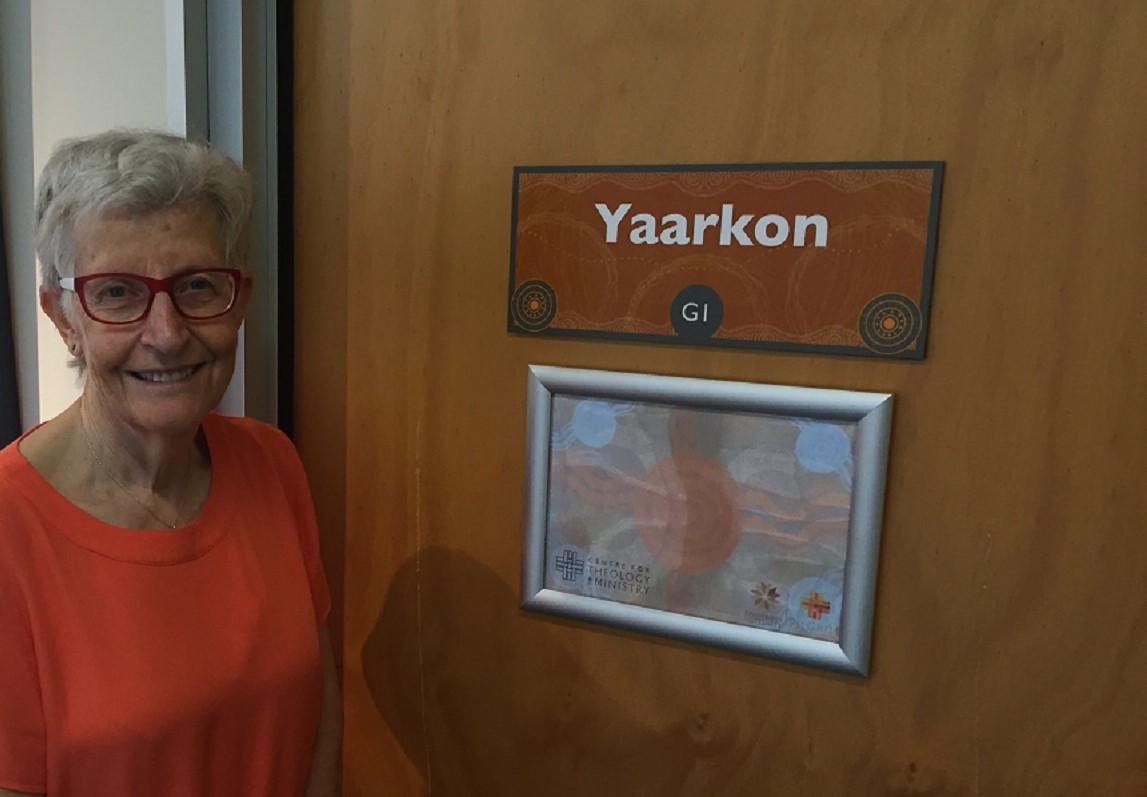
Jenny was instrumental in the recent renaming of rooms and spaces at the Centre for Theology and Ministry in Parkville to acknowledge the fact they are located on Wurundjeri land.
When did you get off the ministry treadmill?
In the mid-1990s, the church was hitting the sexuality debate, whether homosexuals should be in leadership or even in the church and so on. And I could see the writing on the wall that life was going to get tough. The debate was very heated.
My congregation was at the conservative end of the spectrum and I didn’t want to be in a leadership role in a congregation that wasn’t supportive. I wasn’t sure of my own sexuality at that time and it wasn’t a safe place to have that conversation. The Church still isn’t sophisticated enough to really discuss sexuality, let alone back then.
There was a ministry placement for a new position called Lay Education Director at Otira. I applied and got it, probably primarily because of my teaching background, but also because I’d been in ministry with lay people, and I stayed there for nine years.
Just returning to the sexuality debate, you said it was very heated. Given your sexuality – and the fact you were still working it all out at that time – were you ever burned?
Well, while I was at Otira I was nominated for Moderator. This was 1996 and by now I was in a committed relationship with another woman. I wasn’t necessarily even sure whether I was homosexual or bisexual or whatever, but I didn’t think it was any business of the Church. What they needed to know was if I was in a committed relationship.
My nomination wasn’t successful. In fact they changed the voting. It went to the vote on the floor of the Syond, but in those days they only brought one name and that person only needed 51 per cent in favour to become Moderator.
But before they took the vote, they changed it so that my nomination would need, I can’t remember the exact figure, but it was more than 70 per cent. So they had the vote and I didn’t get it. I think I got 67 per cent.
I knew there was going to be a hullabaloo so I said to the selection group beforehand I would understand if they didn’t want to propose my name. And they said to me, we do want to propose your name, but we’ll understand if you want to pull out (laughs). So there was mutual agreement that my name would go forward.
So your mum dies and that doesn’t shake your faith in the Church and you’ve explained how it actually strengthened your relationship with God. Now you are more or less rejected by the Church, yet you’re still here. Please explain.
(Laughs) Well I knew I wouldn’t get elected as Moderator, so I said I wanted to respond to the Synod. Normally a “losing” Moderator nomination wouldn’t get to speak, but I was allowed to. Because I knew I wouldn’t get elected I had my rejection speech in my pocket. When I first came out to my father, he became a member of Synod so he could be there to make sure I was treated with respect. So he was sitting there. The ABC was there, it was on national news. A Current Affair kept badgering my dad and my family. As did The Age and the Herald Sun. I’ve still got all the paper articles
In my head it wasn’t my problem, it was the Church’s problem and I said that to the Synod. I said it reflected an ambivalence in the Church, not an ambivalence in me. And it was the Church that had to come to terms with accepting my leadership. To be nominated meant a couple of presbyterys would have suggested me, so that made me feel good.
I guess the blessing out of it all was that I was able to take out all the internalising of my sexuality. If you, if you speak to any person who’s trying to work out their sexuality, they do this kind of whole internal narrative and I was able to put it out there and say, “this is your issue. I’m not going to do your work for you”. That was a more healing thing for me than a negative thing and straight away my colleague at Otira had a motion prepared, which was that I be affirmed in my current ministry. I wasn’t present for that, but the motion was proposed and passed. So the message I received was “no to the Moderator’s role, but yes to your ongoing ministry”. I still think that’s a bit of ambivalence there, but it didn’t worry me.
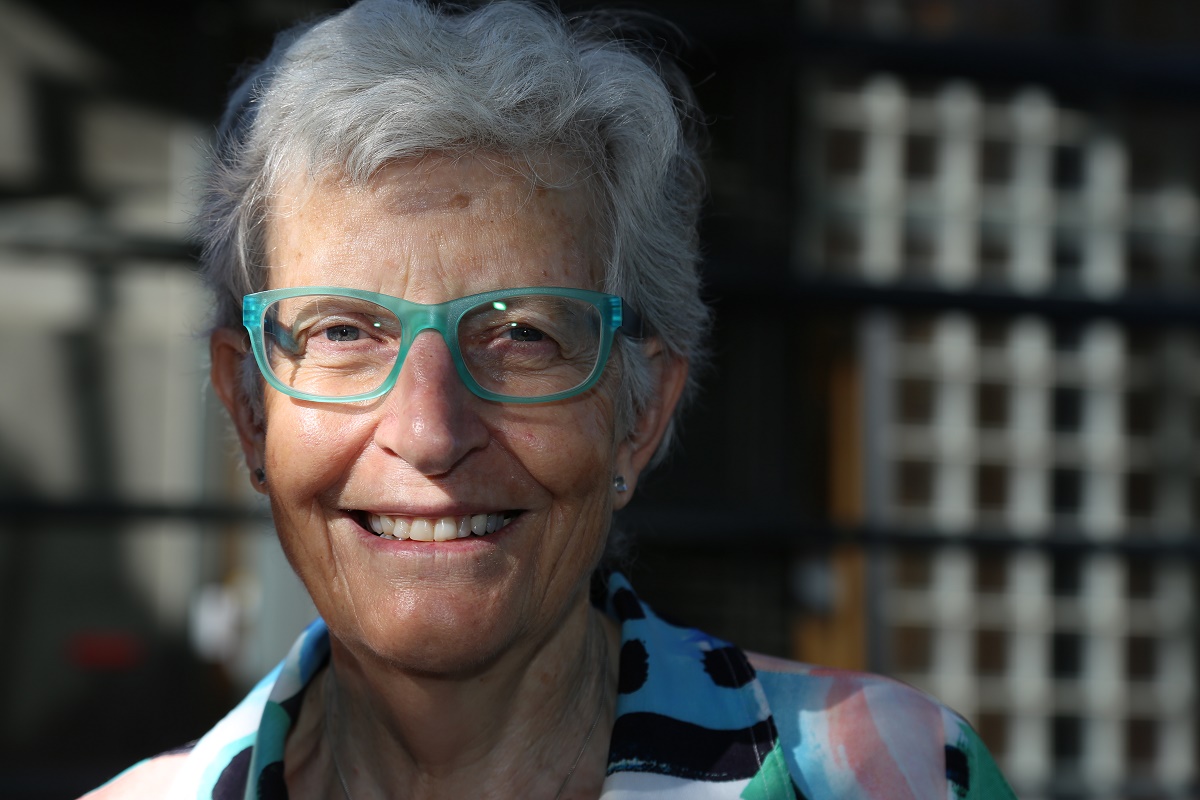
Jenny believes the Synod of Victoria and and Tasmania has a more enlightened view on the issue of sexuality.
Safe to say you’re a glass half full person?
(Laughs) Yes, I think you could say that.
So this is this debate’s happening in the church at that time. Was that aligned with where society sat on this issue, do you think?
It’s hard to say, but the next year, 1997, that the Assembly in Perth had a massive blow up about it and that made headlines, but you have to realise the majority of traditional Christian churches don’t accept it and certainly back then didn’t accept it. The Catholic church still doesn’t. There’s a lot of buried cultural, religious thinking in society, so many people would have conservative views about sexuality based on their cultural religious upbringing. And some of those people would go to church and some wouldn’t. There would’ve been a lot of animosity in that direction.
When did the church officially come around?
In 1997. There was a statement by the Assembly saying that a person’s sexuality on its own was not sufficient to deny his or her ministry or leadership. So you could make a case that it was how they expressed their sexuality might be a problem, hetero or homo. That decision started to open the door for people to be able to exercise leadership.
I was still at Otira then – I was there for another three or four years – and that was pretty tense. There were attempts to move me out of the church. It continued to bubble along. I’m not sure I ever got hate mail, but I certainly got mail from people thinking I shouldn’t be in that role. I think I was probably protected to some extent. I think the General Secretary and people like the Moderator probably took a fair bit of heat.
You seem to have been at the epicentre of this debate/issue. Do you feel you have had some role in the church moving from rejection to acceptance?
I’m sure I have, particularly in this Synod and others, where I was doing a fair bit of work. But I was copping flak from both sides. Some took the view that I could have been advocating much stronger for the whole sexuality thing. My stance was that I was not an activist, I was an advocate. I would no longer deny my sexuality, but I wasn’t going to be the front of the debate because I had the view that if I became an activist, I wouldn’t have lasted long in my role at Otira. So I guess I wanted my ministry and my leadership to do the talking, to say “there’s nothing to be afraid of here”. I remember saying to the Assembly in 1997, “I have many foibles and flaws, but my sexuality’s not one of them”.
How far has the Church come on this. It’s 2022 now, are you completely comfortable with where it sits on this issue or is there still work to be done?
I think this Synod is different from other Synods. Other Synods are still in trouble on this issue, but I think in general, I’ve been accepted in ministry. There would be some people that won’t accept my ministry. I did a workshop in Cobden recently and I wouldn’t know if some people didn’t come because of me.
How would they know about your sexuality?
People that are as old as me know. I was on 60 Minutes back then so some people would still know the story. At the time, Sue Clarkson was key leader in Synod ministry for youth and when I didn’t get the vote at Assembly I’m told she walked out and all the young people got up and walked out, too.
I think we have come a long way, but there are more important things that we are struggling with – power abuse is one of them. For example, if I inappropriately use my sexuality or something else, abusively, that’s more of an issue than what my actual sexuality is.
As I said, people that don’t agree with my sexuality probably don’t come into my sphere anymore and in the early days they probably didn’t get support from the leadership in the Synod to keep harassing me.
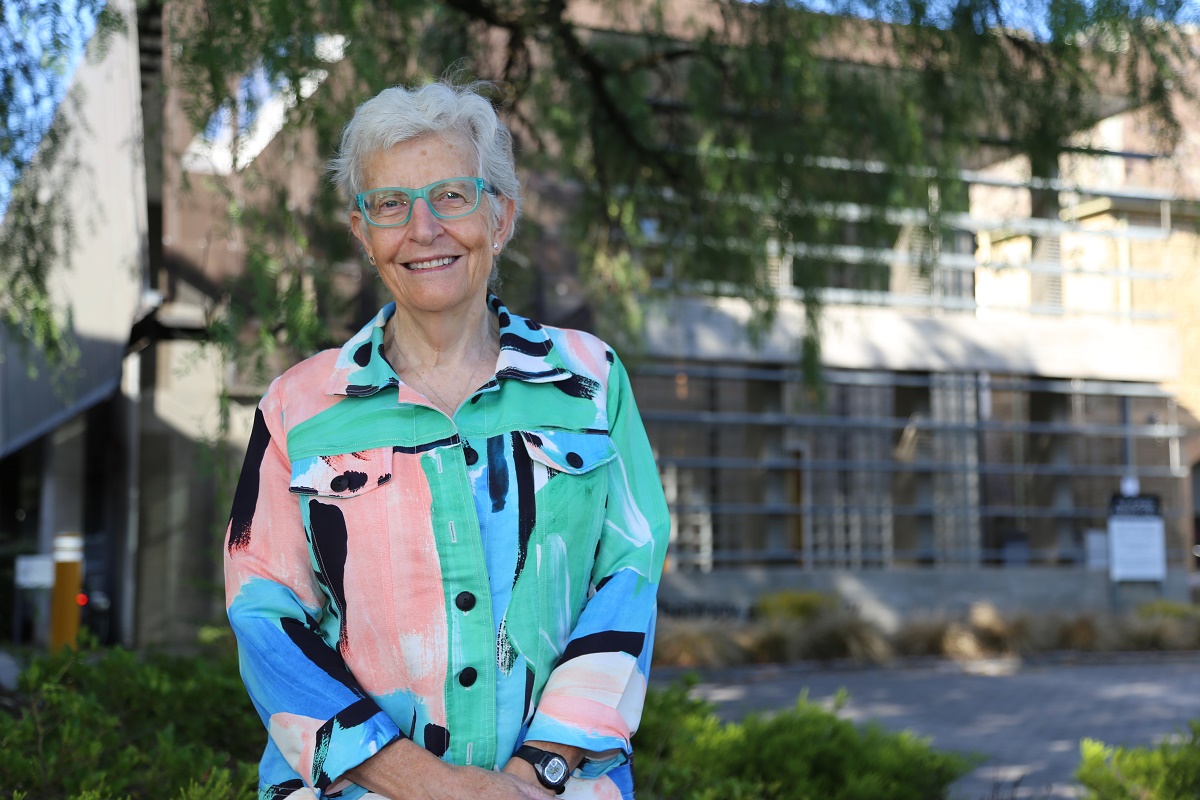
“The challenge for us is to be faithful and that will be different in different spaces. So I imagine the Uniting Church might look pretty different in 10-15 years’ time,” Jenny says.
Can you just expand on what you mean by “power abuse”?
All of us need to be careful how we use our influence and that’s more important than someone’s sexuality.
What are the major issues confronting the Church nationally and the Vic/Tas Synod more specifically?
Well, I wouldn’t know nationally, I’m not in the national space, but I think we’ve got to stop worrying about saving the Church. It’s not our Church to save. The challenge for us is to be faithful and that will be different in different spaces. So I imagine the Uniting Church might look pretty different in 10-15 years’ time.
When I was at Cobden, they told great stories about ministry and want to start new things like breakfast clubs and young mums’ groups to offer support for people in need. And it wasn’t just Cobden, it was Camperdown, Colac, Terang and other places. If they get enough energy or resourcing to do that from gathering in a worship space, then that’s great, but in the worship space itself we don’t want to turn in, we need to be turning out. I think we have an idea of what it is to be “church” and people are trying to reach that ideal, but there’s probably not an ideal anymore, so we have to let the ideal go.
Let’s get on to eLM – equipping Leadership for Mission. You are about to step down as the inaugural executive officer. Where were you before you came to eLM?
I was at the Centre for Theology and Ministry, which was a unit in its own right. It had the Theological College and children’s ministry and youth ministry and so forth. Before that, I’d been in Adelaide as the Minister at Pilgrim Uniting Church.
What was your role at CTM?
I was Executive Director from 2009-2017.
Were you part of the process in forming eLM?
Yes and I can’t remember if I was invited or I put my hand up, but I applied for the EO role and was successful.
When you sat in the chair on day one in 2018, what was eLM’s mission statement?
To resource, support and empower people beyond eLM to be effective in their ministry in mission.
OK, so it’s been four years, is there anything you can hang your hat on in those four years to say, “I’ve achieved that”?
I think making sure the wider church knew what eLM was and what it could do. So a public profile for eLM, which has been important, and from what I hear, the Church supports what I’ve been doing. People might wish we were doing things slightly differently and so on, but in general, when we’ve had financial challenges in the last couple of years and so on, people have wanted eLM to do the right thing in terms of being good stewards with the money. They don’t want to cut eLM, they want eLM to stay strong and resourceful for the Church.
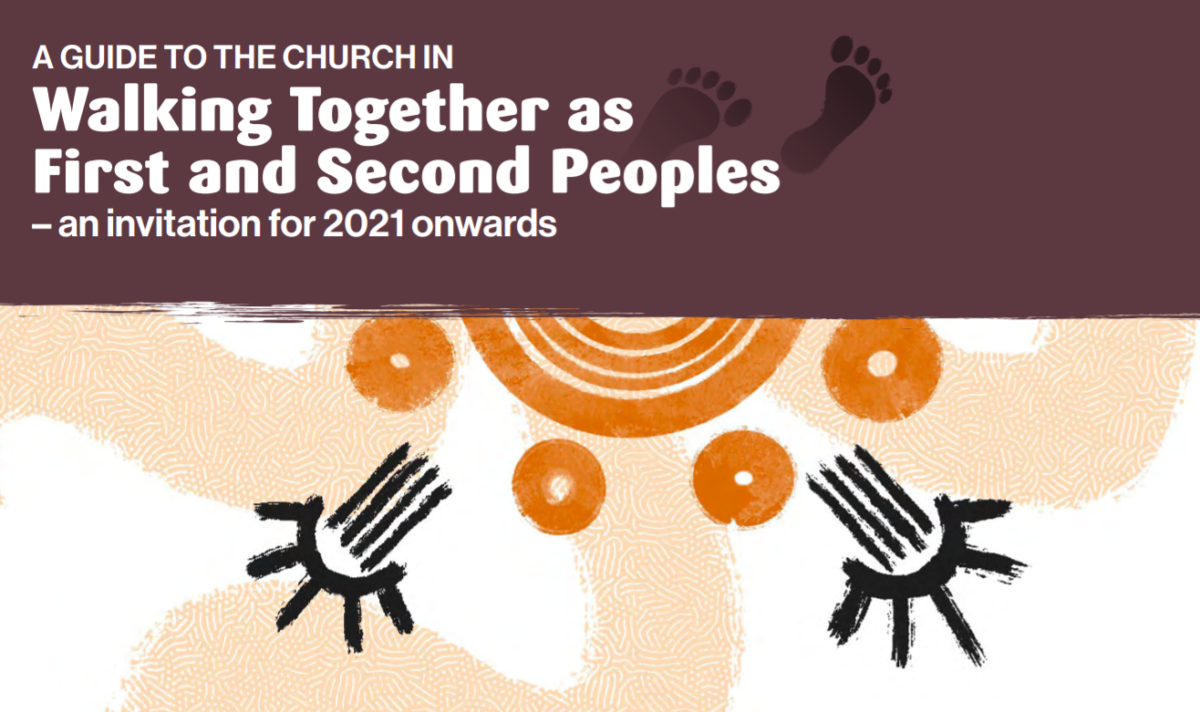
Jenny is proud of the work done on the Covenanting Guide promoting the church Walking Together as First and Second Peoples.
Is there anything you haven’t quite finished that you would have liked to?
I think eLM’s culture internally and externally is probably a work in progress. Pre-COVID, we wanted to do some anti-racism training to ensure we were more able to work in the CALD space , but COVID more or less crashed in on that and delayed it.
I have enjoyed the big things, like the Covenanting Guide and getting that out there and Money For Mission. One of my colleagues called me “dogged” (laughs). I just keep on doing and that links back to my physio days, like I used to run marathons and stuff like that, and I still try and do some endurance events in cycling and so on.
You can have a general goal, but what matters is what you do each day that brings you closer to that goal. I’m very good at doing what needs to be done this day to get to that end goal.
Do you mind if I ask how old you are?
I’m turning 68 this week.
How long did it take you to come to the decision to retire?
My placement concludes and I just felt I’d been doing this job for five years and, at 68, it’s probably helpful if someone else comes into this space and adds a different colour and shape and so on. Things become more robust when there’s a different emphasis and so forth. I’ve done my best.
Any advice for your successor then?
No (laughs).
That says to me you have plenty, but you don’t want to elaborate and that’s fine. What’s next for you, beyond retiring?
I’m hoping to teach one unit at Pilgrim Theological College on leadership, if we get the numbers. I’ve said I want 12 people in the classroom and I think we’re up to 10, but generally I don’t want to do anything for a while. I want to allow other things to come. I’ve got a younger brother who’s recently retired from the police force and his advice was unless you stop doing things, new things won’t come. So I feel like I just want stop for a while and see what else might come.


